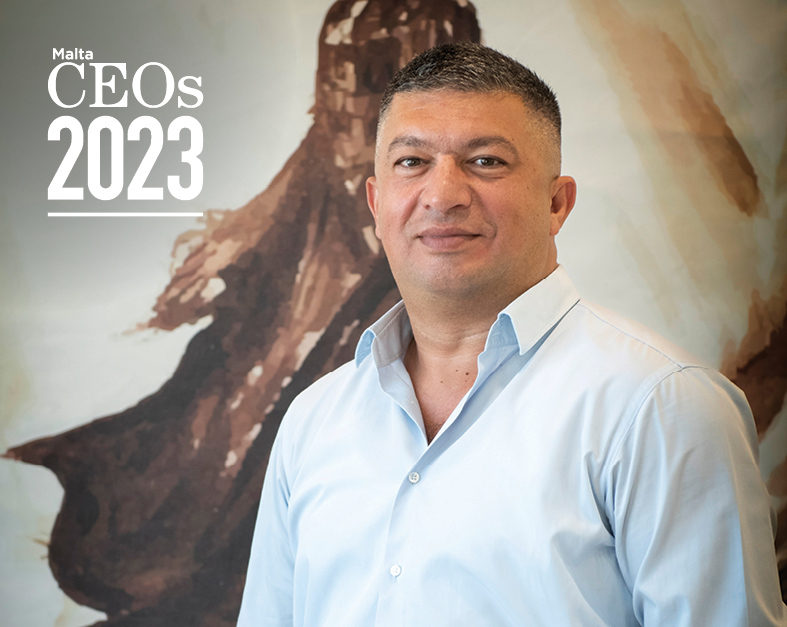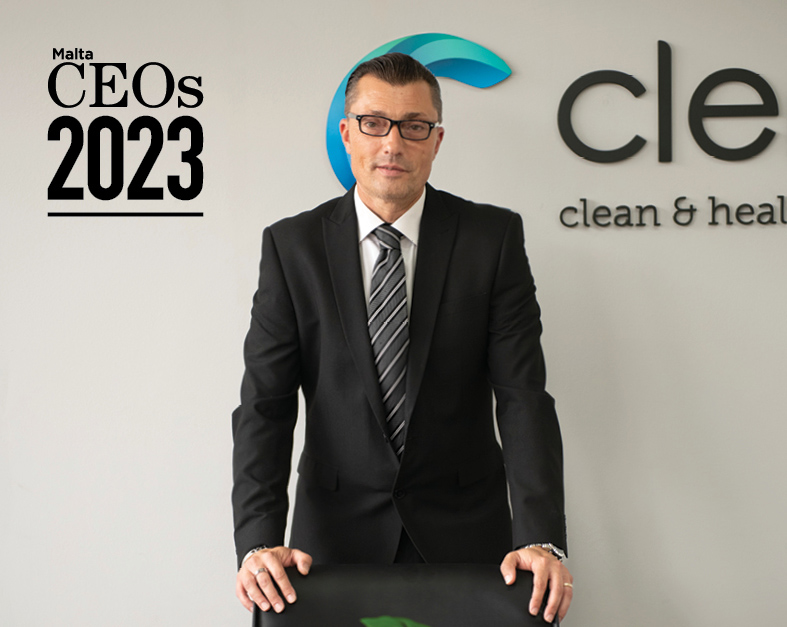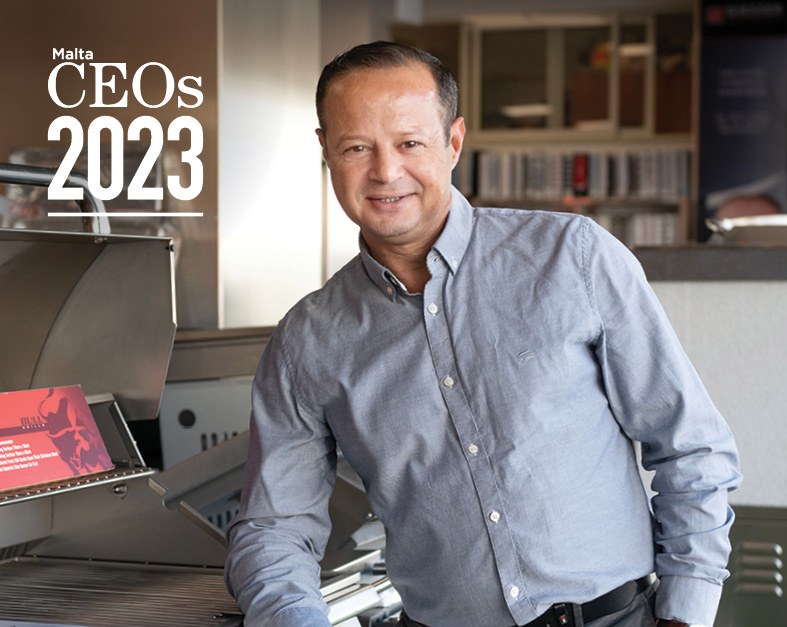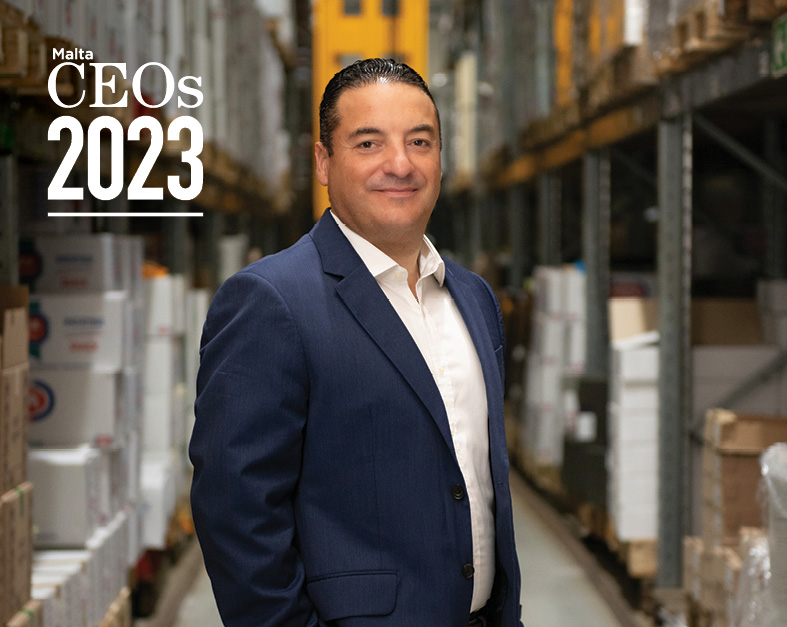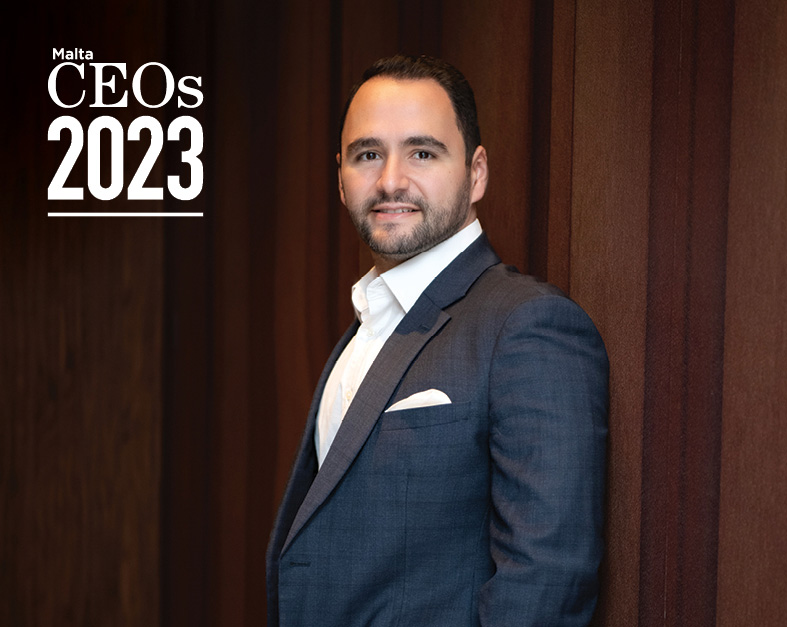If luck is what happens when preparation meets opportunity, then Cenk Kahraman and the company he heads are very lucky indeed. When opportunity came knocking under the guide of a global emergency, both Finance Incorporated Ltd and its CEO had been prioritising preparation for some years, and the results speak for themselves.
When Cenk Kahraman moved to Malta from Turkey to open a subsidiary of the National Bank of Greece (NBG) 18 years ago, he underestimated just how significant the shift in his career’s trajectory would be. “When I was appointed CEO of NBG in Malta, it was a big change for me,” he recalls. “I had worked in several departments for seven years in Turkey and abroad, but I had always reported to someone else. Now, I was suddenly the decision[1]maker. That position taught me a lot, especially how to let go and delegate.”
Then, five years ago, Cenk took on the role of CEO at Finance Incorporated Limited (FI), a company that delivers a full range of financial services and infrastructure solutions to corporate and individual clients. And, although he was still working in the financial industry, the differences between FI and NBG were stark. “Despite encountering the same players, like the regulators and Central Bank of Malta, moving from an international bank to what was then a very small company was a complete change of scenery,” he admits. “At NBG, we worked mostly with big corporations and shipping firms, while FI deals largely with small- and medium[1]sized companies and individual clients. The learning curve was steep, but, ultimately, learning never stops, does it?”
Cenk describes his role as that of an orchestra conductor, coordinating and re-routing resources as necessary, while focusing on strategy and new business ideas. A self-confessed control freak, he admits to having found delegation to be the most challenging task he ever encountered. “I have now reached a point where I expect my whole management team to also delegate,” he shares. “We have an executive committee consisting of six C-level executives, so I offload everything onto them. I am obviously still responsible and have to report to the Board of Directors and shareholders, but it’s the executive committee that handles the day-to-day business.
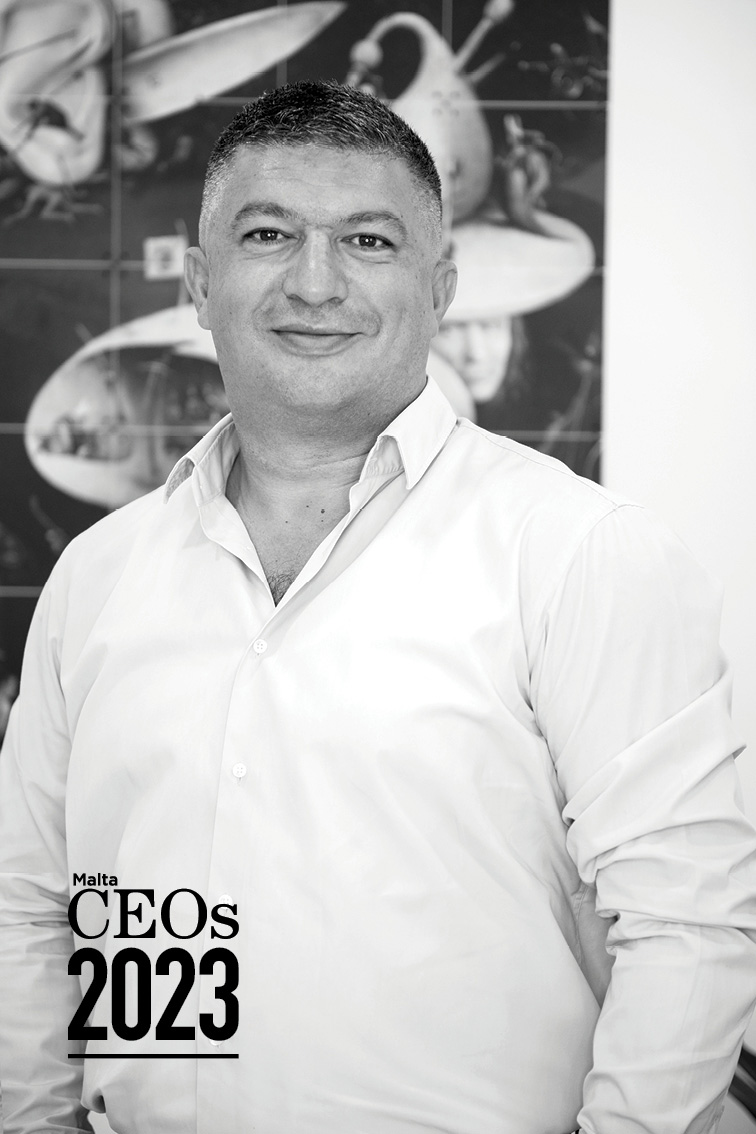
“Our team, our company, our home,” reads FI’s mission statement, and that is exactly how Cenk speaks of his colleagues. “The most important thing is that we are a team. We are all part of the same family, and we all treat each other with respect,” he says. “I believe that the 1990s’ business model with its hierarchical structure is not compatible with our environment anymore. Management is now part of the team.” This is especially the case at FI, where Cenk fosters an open-door policy. He encourages discussion with his managers about their ideas, but stops short of giving them solutions to their issues. “If they come to me with a question, I also expect them to bring two different possible solutions. I discuss the problem with them, but I always remind them that they are the most knowledgeable people in their area, not me. So, I encourage them to think outside the box.”
Cenk’s approach to empowering his team worked in his favour when other companies floundered during the COVID-19 pandemic. Being able to trust and effectively communicate with his team when they were all working from home was the result of heavy investment in their development well before the crisis hit. In fact, the company has engaged the services of a management coach for a few years now.
“She has improved the work-life balance and mental health of our management team,” he explains. “We started our contract with her when the idea of supporting one’s staff with their mental health was not as popular as it is now, and she still visits our offices at least twice a week. We support all those employees encountering problems, whether they be at the office or at home, even if they are going through life-changing events. If a problem can be solved, as a company we try to assist and support.”
Cenk’s delegation of responsibilities and emphasis on coaching paid off when FI’s 60 employees took initiative and stepped up to the plate when forced to work from home during the pandemic. “One of our mottos is ‘let’s do good business’,” says Cenk. “To me, profits are a consequence and not the goal. As a private company, we cannot operate without a good profit, but if you work diligently and responsibly, then profits will come.”
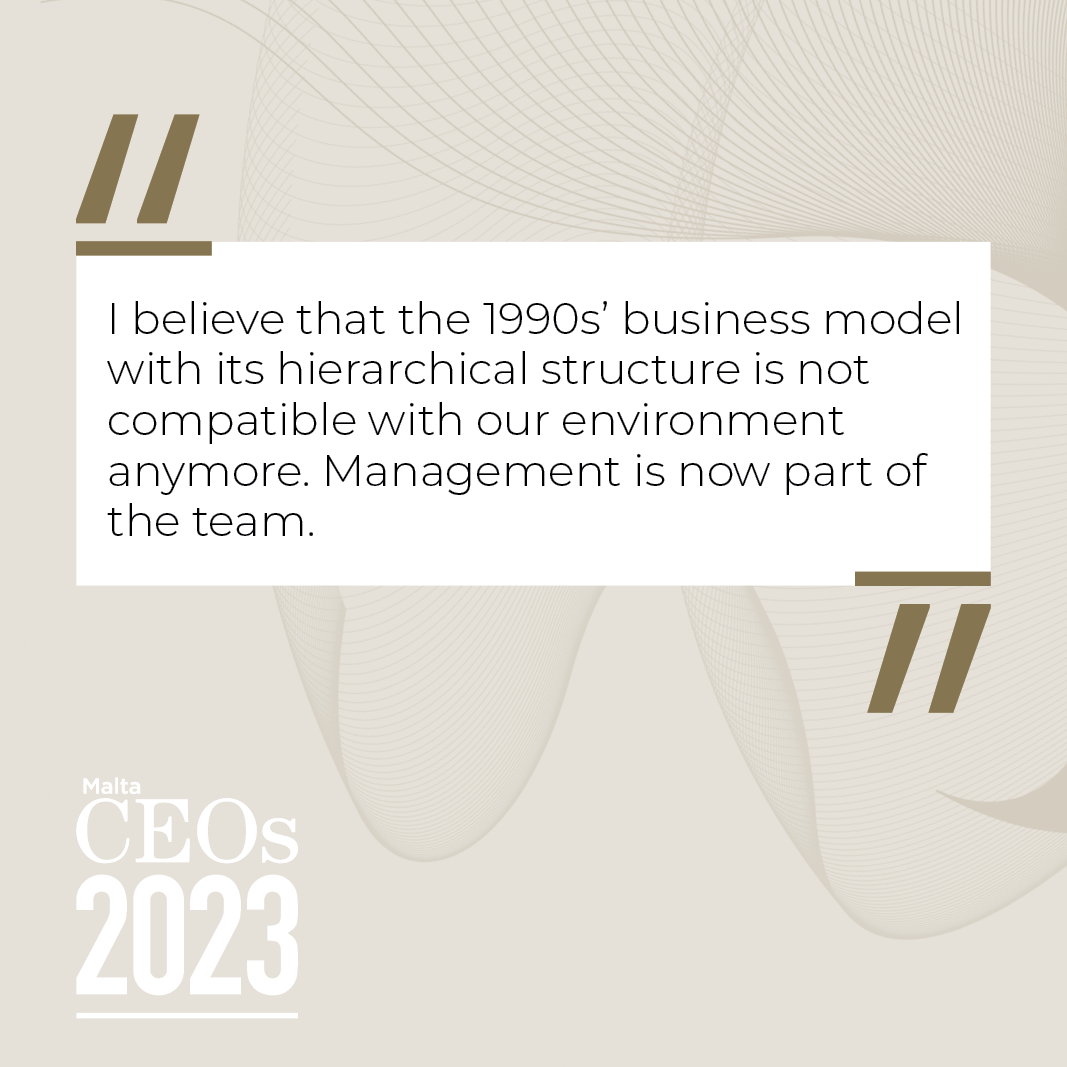
Another unexpected result of the pandemic was the shift towards digital payments, which fortunately aligned with FI’s business strategy. “In general, people became more technologically savvy, which for us meant less time spent needing to explain our products to prospective clients,” he explains. “These changes helped us to swim with the current, not against it, and it led to an increase in customer acquisition in 2020.”
Cenk also attributes FI’s success during this difficult period to economic forecasting and being prepared for the unexpected. “In general, disaster recovery plans and having a business continuity plan were just concepts before the pandemic, but we really put them to the test during this time, and they have proven to be vital for the whole business sector,” he maintains.
When Cenk joined FI, the company’s commercial plan was based on issuing cards, a line of business that was not as successful as initially imagined. That same year, FI transitioned to a completely new company structure and with it, a new business plan. “Now, we are more like a digital bank, with products and services aimed at individuals, companies and institutions,” he explains. “Being digital and innovative in this area obviously helps because we can do more with fewer people – and that’s the whole idea behind fintech and the digitalisation of finance. In fact, last year, we processed around four million payments with just 60 members of staff.”
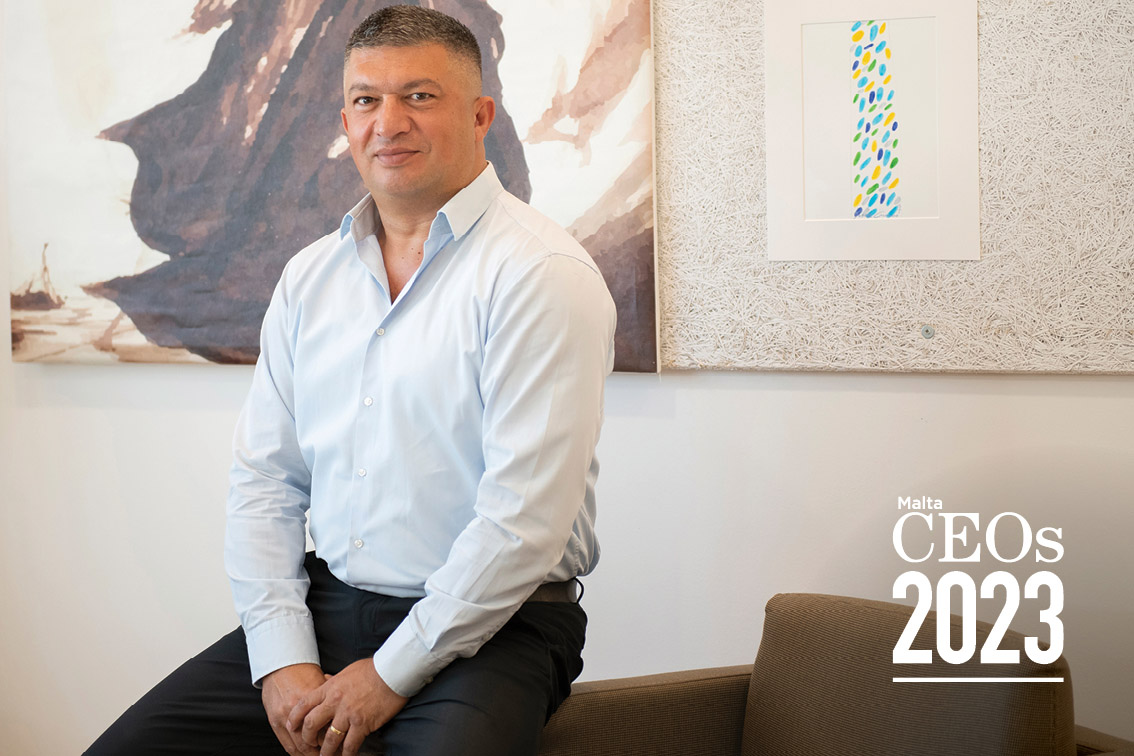
Customers are drawn to FI because of its star products: Paymix Pro, iPaymix and Paymix Via. Paymix Pro is a safe alternative to the classic business bank account that uses multiple payout solutions and enables quicker movement of funds across currencies and borders. iPaymix, on the other hand, is a financial app through which individuals can easily open an account. “We have developed technology that allows us to gather all the necessary information from one’s ID card within the limits stipulated by the Government,” explains Cenk. “It is an easy way of gaining access to a Malta-issued IBAN while keeping your funds safe with European central banks. Then, there is Paymix Via, our newest product, which is aimed at financial institutions and through which we provide clearing services and card-processing services, among others.”
Compliance is FI’s most important pillar. “When you mention compliance, most people think of regulations that limit the impact of money laundering and other financial crimes. Yet, although these regulations are very important, compliance also incorporates matters like the Payment Services Directive, capital adequacy regulations, or health and safety directives,” Cenk elaborates, adding that FI has a local compliance team and a separate legal team that work together to ensure the company always aligns with current regulations, especially putting extra effort on combatting financial crime. “Our technology has multiple layers of screening, which has helped us a lot in this regard. While it can sometimes feel annoying for our clients, this is also how they can feel safer,” he says.
The future looks bright for Cenk and FI, despite the threat of a rise in inflation and global uncertainty. “The financial sector has a difficult time ahead. With the wide-reaching surge in prices, the world’s central banks must coordinate their efforts,” he warns. “As for FI, our focus for 2023 is to expand our reach to other European jurisdictions. We are looking into mergers and acquisitions, which are key because Malta is limited from a physical capacity perspective and, since we want to continue upgrading and perfecting our existing products, we are diverting some of our revenue towards research and development. We aim to be one of the top innovators in Europe.”
This article is part of the serialisation of 50 interviews featured in MaltaCEOs 2023 – the sister brand to MaltaCEOs.mt and an annual high-end publication bringing together some of the country’s most influential business leaders
‘You start from nothing, and then you grow’ – Clentec Ltd Founder and CEO
MaltaCEOs 2023 serialisation: Simon Jesmond Turner shares that some have been with the firm from the start, with children now ...
‘Whatever you’re doing, you always need to be forming relationships’ – Zamco Group CEO
MaltaCEOs 2023 serialisation: Sandro Zammit shares that the company almost never says no to anything, and, while that can be ...
‘Some of the greatest opportunities emerge from crises’ – Nectar Ltd CEO Roderick Abela
MaltaCEOs 2023 serialisation: Roderick has come a long way since his first days at the company nearly three decades ago.
‘I love inspiring others to work towards a goal’ – Bluefort CEO Edward Borg Grech
MaltaCEOs 2023 serialisation: Edward sees a very bright future for the company, particularly since the subscription economy is growing.


